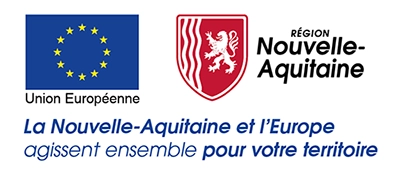Access to raw material is essential if Europe is to support a strong industrial manufacturing base. With limited naturally occurring resources within its borders, the EU has become increasingly concerned about its ability to maintain reliable and unrestricted access to certain raw materials.
In response to this growing crisis, in 2011 the European Commission created a list of the critical raw materials (CRMs) the EU depends on. The list is subject to regular review and has grown from 11 CRMs in 2011 to 30 in 2020, with additional raw materials identified as strategically important and likely to make future updates.
Addressing the real issue
Making a list and identifying an issue is, of course, the easy part. The real challenge is how to address the problem and effect lasting change. This challenge falls directly to industry, and there is no industry more important to the European manufacturing base than aerospace. Unfortunately, the European aerospace industry is a perfect example of why the EU is so concerned, and it must begin to think and act differently if it is to re-emerge stronger in a post-pandemic and climate-conscious world.
Today, the European aerospace industry is a net importer of titanium and superalloy melt products (mainly from Russia and the USA) and a net exporter of unprocessed titanium and superalloy scrap (mainly to the USA). It is also facing increasing competition from non-aerospace sectors for strategic aerospace metals such as titanium, vanadium, nickel, and cobalt. As a result, Europe is open to leverage and limited in its ability to control and manage its raw material supply, one of the most critical elements of production cost.
In response, the EU and the French government encouraged the development of Ecotitanium, a new state-of-the-art aerospace titanium melting facility. Ecotitanium officially opened its doors in late 2017, and more recently supported Aubert & Duval’s long-term superalloys program. They aim to become the first independent European channel dedicated to superalloys melting for the civil aerospace industry, through the French Government’s COVID recovery plan, the Plan de Relance.
These developments certainly strengthen French and European industrial sovereignty. However, both fail to directly address a key issue: how to cut imports of these raw materials while maintaining a resilient supply to the furnaces that make the titanium and superalloys.
A new approach to materials management
The answer lies in the effective management and processing of superalloy and titanium scrap, or what we at IMET term ‘revert.’
Roughly speaking, the buy-to-fly ratio for wrought superalloy and titanium structural components is 10:1. For engine components, it’s 7:1. This means that for every kilo of metal that makes it to a part in a plane or jet engine, between 7 and 10 kilos come off during manufacturing in the form of turnings from machining activities, pieces of metal such as end drops that are too small to forge, and parts which fail testing so are scrapped.
When managed and processed by an approved service provider such as IMET Alloys, this material is perfect for reusing in melts to make more of the same titanium and superalloy ingots. Not only is processed revert a good source of raw material for melting activities, I would also argue it’s a more valuable source of raw material because:
- Revert can represent savings of 10-20% as it’s often sold at a discount to the intrinsic value of the virgin raw materials needed to make the alloy from prime.
- Revert requires less energy to melt than virgin material and removes the need to extract and refine virgin material, providing economic and environmental benefits.
- Perhaps most importantly, the European aerospace manufacturing supply chain generates and exports a significant amount of superalloy and titanium revert. Therefore, careful management that keeps Europe’s superalloy and titanium revert within its borders is key to building European raw material resilience.
Building a resilient and sustainable materials flow
In response, The IMET Group has planned a €10 million investment to establish a state-of-the-art titanium and superalloy processing center of excellence in France. This site will also function as IMET Alloys European headquarters, creating an estimated 50 new jobs and, in phase two of the project, a research and development team.
IMET’s new facility will provide the necessary platform to build closed-loop superalloy and titanium supply chains across the European aerospace manufacturing industry. The ability to channel unprocessed revert—generated by companies such as Airbus, Safran, and their suppliers—directly back into EU-based melting applications will deliver significant commercial benefits to Europe’s aerospace industry, far above and beyond the cash value of exporting it.
IMET’s French-based European headquarters and processing center of excellence are a critical first step towards creating a greener, more resilient, and sustainable aerospace manufacturing supply chain in the EU.
It is an essential building block in forging a truly circular European aerospace manufacturing economy that will reduce Europe’s external dependency on raw material supply—and the associated risk of leverage—while protecting against supply chain disruption.
Article by Ruaraidh Williamson, CEO IMET Alloys

